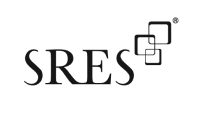When “Assessed Value” Becomes a Selling Strategy
Nov 12, 2025

In Halifax, property assessments have taken on a strange double life. Sellers often treat their assessed value like a badge of honour—proof that their home is “worth” a certain number. Yet they also enjoy paying taxes on a much lower capped rate thanks to Nova Scotia’s long-standing CAP program.
It’s a sweet deal: pay tax on the lower number, advertise the higher one. No wonder most sellers don’t challenge inflated assessments—it feels like free marketing.
But here’s the kicker: those numbers often have no real relationship to what the market will actually pay.
The Psychology of a High Assessment
A high assessment taps into the same emotional space as Zillow’s “Zestimate” or ViewPoint’s auto-value—validation.
It reassures sellers: “See? My house is worth that much.”
But in reality:
- Assessments are not market valuations; they’re bureaucratic snapshots taken long before real-world buyers weigh in.
- CAP adjustments can lag years behind true market changes.
- And some assessments—especially in older neighbourhoods or during market spikes—overshoot wildly.
As a listing agent, I’ve seen homes assessed $100K above their market value. Yet sellers cling to those numbers like gospel because it supports the story they want to tell.
Why No One Challenges High Assessments (Yet)
Under the current Capped Assessment Program (CAP), owner-occupied homes see property taxes based on the capped value, not the full market assessment.
That means if your assessed value jumps from $500,000 to $750,000, but your capped rate only increased 3%, your tax bill barely budges.
So what’s the incentive to appeal?
None.
In fact, challenging your assessment could lower your home’s “perceived” value when you go to sell—so most homeowners quietly celebrate inflated assessments.
The Hypothetical Shake-Up: If We Taxed the Full Value
Now imagine if taxes were based on the full assessed value, not the capped one.
Suddenly, every homeowner in Halifax would be combing through their assessments with a magnifying glass. That $850,000 “bragging right” would become a $10,000+ annual tax headache.
Appeals would skyrocket. Accuracy would matter again.
You’d see homeowners demanding transparency, questioning how PVSC (Property Valuation Services Corporation) determines “market value,” and actually pushing for fairer, more consistent assessments.
In other words, financial accountability would bring realism back to the conversation.
The Real Estate Agent’s Challenge
Here’s where it gets tricky for agents.
When sellers cling to their assessed values, they often:
- Anchor their list price to that number (even when comps say otherwise).
- Resist market-driven pricing strategies.
- Assume buyers see “assessed at $X” as meaningful—when buyers, frankly, don’t.
The result? Overpriced listings, longer days on market, and frustration all around.
As agents, we have to bridge that gap—educating sellers that the only number that matters is what buyers are willing to pay, not what PVSC’s algorithm spits out.
**Assessment days on market, and frustration all around.
As agents, we have to bridge that gap—educating sellers that the only number that matters is what buyers are willing to pay, not what PVSC’s algorithm spits out.
Assessment vs Market Value: What Sellers Should Know
Here’s the truth, plain and simple:
|
Concept |
What It Means |
Why It Matters |
|---|---|---|
|
Assessed Value |
PVSC’s estimate of your home’s worth for taxation |
Can be outdated or inaccurate |
|
Capped Assessment |
The taxable value, limited to annual increases (max 10%) |
Keeps taxes stable but hides real market shifts |
|
Market Value |
What buyers are actually paying for similar homes right now |
The only number that determines your sale price |
So, if you’re selling in Halifax, don’t anchor to your assessment. Use it as a data point, not a price guide.
Policy Implications: The Hidden Misalignment
The CAP system was designed to protect homeowners from being taxed out of their properties during boom years. It worked. But over time, it’s created a disconnect between real value and perceived value.
- Buyers and sellers operate in two different realities.
- Municipalities lose potential revenue based on artificially low tax bases.
- The accuracy of assessments no longer matters—because no one’s wallet depends on it.
If that changes, the entire system would recalibrate overnight.
What This Means for Halifax Sellers
For sellers, the takeaway is simple:
Don’t let your assessment dictate your asking price.
Work with an agent who’s tracking real-time sales, not frozen numbers on a tax form.
If you’re curious about whether your home’s assessed value matches today’s market reality, I’ll happily break it down with a side-by-side analysis of local sales, assessment trends, and capped rate implications.
Thinking about selling your home in Halifax? Let’s make sure your pricing strategy reflects today’s market—not your tax bill. Contact me for a custom market evaluation that looks beyond assessments.










.jpg)

